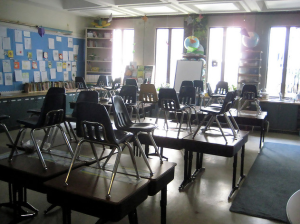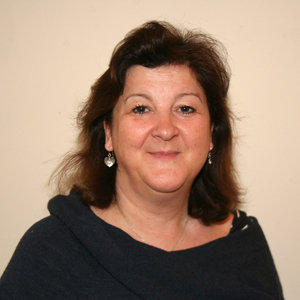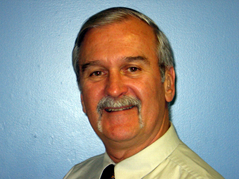News & Announcements
- Details
- Written by Joshua Wachtel
 Photo by Kevin Wong, Flickr Creative Commons
Photo by Kevin Wong, Flickr Creative Commons
Lois Puglionesi writes in the DailyTimes, serving Delaware County, Pennsylvania, that Haverford School District is looking to address bullying utilizing restorative practices.
The article discusses bullying, its pervasiveness and possible reasons for its seeming rise:
In a presentation to the school board, Special Education Director Valerie Burnett said a recent Pennsylvania Youth Survey showed that bullying remains a key area of concern for schools across the state. Non-physical forms of bullying appear most prevalent, with one-third to more than half of students reporting that others had deliberately excluded, teased, or spread false rumors about them.
- Details
- Written by Joshua Wachtel
Ted Wachtel's plenary – "Defining Restorative and Building a Worldwide Restorative Practices Learning Network" – from this year's IIRP's 15th World Conference. View the video here.
- Details
- Written by Joshua Wachtel
The following is from an article in the Allentown Morning Call about some positive trends associated with Bethlehem School District high schools' implementation of IIRP's SaferSanerSchools Whole School Change Program.
 Liberty High School photo from Easton Express-TimesSuspensions, fights, bullying and other forms of poor student behavior dropped at Freedom and Liberty high schools during the 2011-12 school year, documents show.
Liberty High School photo from Easton Express-TimesSuspensions, fights, bullying and other forms of poor student behavior dropped at Freedom and Liberty high schools during the 2011-12 school year, documents show.
The improved discipline picture is a reversal of 2009-10 and 2010-11 when infractions went up in the Bethlehem Area School District's two high schools as part of a districtwide increase of 36 percent.
Compared with the 2010-11 school year, suspensions dropped 20 percent to 978 in 2011-12. The number of students suspended three times or more went down 43 percent to 493 at the two high schools over the same time frame, according to the Code of Conduct report, which separates offenses into three levels of severity.
- Details
- Written by Joshua Wachtel
 Estelle Macdonald of Hull Centre for Restorative Practice
Estelle Macdonald of Hull Centre for Restorative Practice
Here's a lovely piece by John Maslin from the Wanganui Chronicle about a two-day conference on the subject of Wanganui, New Zealand "re-inventing" itself as a restorative city. Estelle Macdonald, head teacher at Collingwood primary school in Hull and director of Hull Centre for Restorative Practice (an IIRP international affiliate) was the keynote speaker on the first day of the conference. Maslin's report is titled "Community must be involved." He writes:
Ms Macdonald's progressive ideas turned her school around from being one of the worst performers into one of the best in the space of a few years but, more importantly, saw the restorative practices implemented at her school adopted by the city. ...
- Details
- Written by Joshua Wachtel
 Sen. Evie Hudak, D-Westminster, co-sponsor of a law amending Colorado’s zero-tolerance school discipline policies, spoke at Thursday’s celebration at North High School in Denver. (From EdNews Colorado)From an article titled "Bills influencing school disciplinary policies head to governor via EdSource Today:
Sen. Evie Hudak, D-Westminster, co-sponsor of a law amending Colorado’s zero-tolerance school discipline policies, spoke at Thursday’s celebration at North High School in Denver. (From EdNews Colorado)From an article titled "Bills influencing school disciplinary policies head to governor via EdSource Today:
Seven bills that collectively will shift thinking on how California schools discipline students will likely land on the governor’s desk at the end of the current legislative session on Friday.
Although the bills no longer mandate changes that their authors originally envisioned, “they start to lay out alternatives to suspensions and expulsions,” said Erika Hoffman, a lobbyist for the California School Boards Association (CSBA). “These bills set out a process for how teachers, administrators, and school board members can begin to think about discipline differently.”
- Details
- Written by Joshua Wachtel
Here's another great short video from Restorative Justice Colorado. This one looks at a youth crime from a victim's point of view.
- Details
- Written by Joshua Wachtel
Here's piece #3 in this continuing series on some of the great workshops I attended at IIRP's 15th World Conference. (I would note that some of the power points from various sessions have been posted on the IIRP web site - click here.)
 Chuck Saufler, who is based in Maine, was a guidance counselor and now trains and consults with schools and communities. His focus, according to his Safe Schools for All web site, has been "to reduce bullying and peer aggression in children and adolescents through the implementation of restorative practices." His session at the conference, “Connecting Restorative School Practices to Brain Research and Bullying Prevention,” struck me as significant for establishing a scientific foundation for certain aspects of restorative practices.
Chuck Saufler, who is based in Maine, was a guidance counselor and now trains and consults with schools and communities. His focus, according to his Safe Schools for All web site, has been "to reduce bullying and peer aggression in children and adolescents through the implementation of restorative practices." His session at the conference, “Connecting Restorative School Practices to Brain Research and Bullying Prevention,” struck me as significant for establishing a scientific foundation for certain aspects of restorative practices.
After introducing himself, Chuck showed a YouTube video demonstrating the “Still-face Experiment” (see video below). In this experiment, a mother of a child first demonstrates her child’s full engagement when she talks to her, smiles, and responds with positive affective facial expressions. Then the mother turns on a dime and presents a nonreactive face to her child. The child tries every trick to get the mother to engage but then breaks down and cries. This set the keynote for Chuck’s talk – how from a very young age we respond best when those we rely upon engage and connect with us.
- Details
- Written by Joshua Wachtel
At the beginning of the summer Ted Wachtel described Nils Christie's plenary at the European Forum for Restorative Justice in Helsinki, Finland. Christie "talked about the shootings of children that occurred last summer on an island in Norway at a labor party camp and the bombing in Oslo. And he talked about how Norway seems to have become increasingly restorative. The response of the public, instead of for vengeance was one of acknowledgement of harm, of caring for the people whose children were victims and for those who managed to survive."
- Details
- Written by Joshua Wachtel
 Teacher Robert Roth at a picnic celebrating the high school's gain in test scores. Photo by Winni Wintermeyer at Mother Jones[At last summer's IIRP Summer Symposium: Turning the Tide (August 2011), I heard a lot about the problems of No Child Left Behind and how schools might be creating positive environments and making tangible changes but still be deemed failing by the standards of current law which relies upon the results of standardized testing alone.
Teacher Robert Roth at a picnic celebrating the high school's gain in test scores. Photo by Winni Wintermeyer at Mother Jones[At last summer's IIRP Summer Symposium: Turning the Tide (August 2011), I heard a lot about the problems of No Child Left Behind and how schools might be creating positive environments and making tangible changes but still be deemed failing by the standards of current law which relies upon the results of standardized testing alone.
Here's a lengthy piece from Mother Jones about one school in San Francisco that seems to fit into this category. It has a high population of Latino students, who don't necessarily fare well on standardized tests. And yet the school clearly has a caring principal and enthusiastic teachers. Maria, the main student profiled in the piece, flourishes there.
Nowhere in the article is the phrase restorative practices mentioned, but clearly the people in the school have done something to foster a warm atmosphere with positive relationships. This quote stuck out at me:
"I have seen about 20 rounds of classroom reform in my teaching career," Roth [a teacher in the school] told me recently. "You know what I haven't seen? Serious dialogue with teachers, students, and parents. They can identify successful teaching, but they are rarely a part of the discussion."
Those kinds of discussions and inclusiveness of all the stakeholders fit neatly in the basic restorative premise of doing things "with" people, rather "to" them or "for" them.
The full 4-page piece can be found here: "Everything You've Heard About Failing Schools Is Wrong" by Kristina Rizga.
- Details
- Written by Joshua Wachtel
With so many states, cities and school districts reevaluating discipline codes, Dignity in Schools, a U.S.-wide coalition of youth, parents, educators, grassroots and advocacy groups, which aims to end the school "pushout" crisis and foster positive approaches to school climate and discipline, has published a "Model Code on Education and Dignity." At the same Dignity in Schools is joined by 50 other groups calling for a national moratorium on the use of out-of-school suspensions for students.

Restorative Works Year in Review 2024 (PDF)
All our donors are acknowledged annually in Restorative Works.
